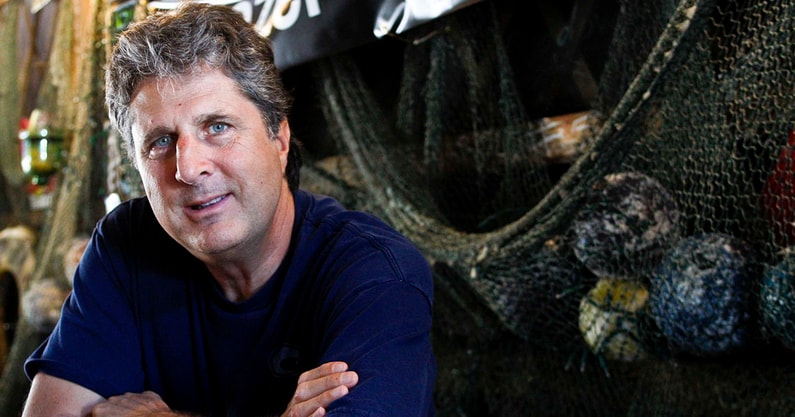Hal Mumme recalls how Jimmy Buffett, a Key West bar led to Mike Leach's fascination with pirates

Among many other things, late Mississippi State coach Mike Leach was well-known for his fascination with pirates. After all, he was known as “The Pirate” during his time as a head coach, and that fascination goes back to his days alongside Hal Mumme at Iowa Wesleyan.
Mumme and Leach embarked on a trip to Florida in 1991 to do some recruiting work, and that journey took them all over the state. The most notable place they went was Key West — a place that became a key part of Leach’s life and part of his legacy as “The Pirate.”
But the soundtrack to that trip is critical to the story, as Mumme recalled during Leach’s memorial service Tuesday, one week after Mississippi State announced his death at age 61.
“We had driven around all these places in a 1984 Ford Taurus trying to find all these ideas to put into our offense, put into what we were doing,” Mumme said. “This was the ultimate trip. We finally made it to Key West. The whole time we would drive around, we would listen to Jimmy Buffett. All the time. That’s all we played.”
Eventually, the duo made it to a bar called Captain Tony’s Saloon, owned by Key West mayor “Captain” Tony Tarracino at the time. They had a few drinks and took in the atmosphere, but Mumme eventually had to go back to the hotel to sleep. Leach, however, stayed out, and he got the experience of a lifetime by meeting “Captain Tony,” himself.
As for Mumme, he found out about that conversation the next day, and it centered around a history lesson near and dear to both coaches’ hearts. It involved Buffett’s hit song “Last Mango in Paris” and the person who took the first fast boat to China.
That person was Captain Tony.
“We stay there [at Captain Tony’s] for a long time and it gets to be about 1:00 in the morning,” Mumme said. “Now, I couldn’t hang near as good as Mike Leach. I have to go to bed around 1 or 2 or I may pass out. But Mike, he seemed to get stronger as it went on. I said, ‘Look, Mike, I have to go to bed. But if you want to stay, go ahead.’ So, I went back to the hotel.
Top 10
- 1New
CFB General Managers
Top 25 highest paid
- 2
Whit Weeks
Initial status vs. Texas A&M revealed
- 3Hot
SEC ref suspended
Reportedly permanently
- 4
'Everything was no'
Dan Mullen on Florida resources
- 5Trending
Deuce Alexander
Ole Miss reveal status vs. OU
Get the Daily On3 Newsletter in your inbox every morning
By clicking "Subscribe to Newsletter", I agree to On3's Privacy Notice, Terms, and use of my personal information described therein.
“The next day, we get up, we’re eating lunch and he looks at me and he goes, ‘You’re going to hate me.’ I go, ‘Why?’ He goes, ‘Because you’re going to be so jealous. … When you left, Captain Tony Tarracino came and sat next to me on that barstool you were on and then, he proceeded to tell me the whole story about how Jimmy Buffett wrote Last Mango In Paris about his life.’ He said, ‘It was so great and I know you’re jealous now.'”
On that trip, Mumme and Leach signed a kicker. But as they drove back to the airport, Mumme told Leach about a potential opportunity at The Citadel, a senior military college in South Carolina. He was thinking about taking the job if it came open.
Leach didn’t sound interested in joining Mumme if he went — and that’s when the legacy of “The Pirate” began.
“We sign the kicker, we went back to Orlando and we’re driving along and I looked at Mike and I said, ‘You know what? I kind of like Charleston, South Carolina,'” Mumme said. “‘I think I could get the job at the Citadel. I think it’s going to come open.’ He looks at me in this deadpan way that only he could do and he just says, ‘I don’t want to play soldier.’ I said, ‘What do you mean?’
“He goes, ‘Well, schools like that, they play football, they go to school, but they dress up in uniforms and they play soldier all the time. If I’m going to play something, I’m going to play pirate.’ That’s where the idea was born right there.”